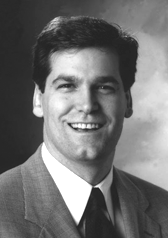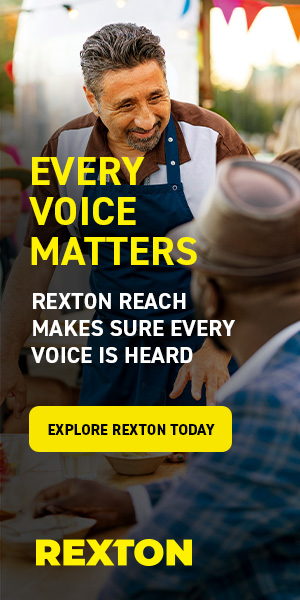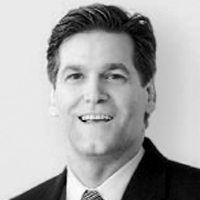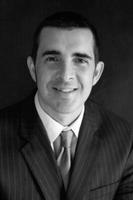Interview with Chris Smith President of Cochlear Americas
 Beck: Good Morning Chris. Thanks for your time today.
Beck: Good Morning Chris. Thanks for your time today.
Smith: Hi Doug. It's nice to meet you, thanks for your time too.
Beck: Chris, I know you're the new president of Cochlear Americas, and I definitely want to spend a lot of time speaking about the corporate issues, but before we do that, would you please tell me about your education and professional background?
Smith: Sure Doug. I went to Texas A&M and graduated in 1985. I began my career at Abbott Laboratories. I have been involved in the medical device industry throughout my career. In addition to Abbott, I worked at companies like KCI, Prism Enterprises and Gyrus. After leaving Gyrus as Group President for the surgical & ENT businesses, I went to work for Warburg Pincus, a healthcare investment firm. While I was there, we identified the hearing industry as a field that is significantly under served. In September of 2004, I had the good fortune to become president and CEO of Cochlear Americas.
Beck: Very good. Chris I know the past year has been challenging for Cochlear Americas, and I wonder if you can give me your perspective on that? Smith: You're right, Doug, it was a challenging year. However, I believe that as a result of those challenges, we've allowed some very strong and talented team members to "step up" and participate at a higher level. And that's good for all of us - the company, the employees and our customers. I think leadership changes can sometimes be difficult, but in this case, it's been beneficial. We are, once again, experiencing rapid growth and looking forward to the future. As you know Doug, there are thousands of people with hearing-impairments that can benefit from cochlear implantation, and yet less than eight percent have actually received the technology.
Smith: You're right, Doug, it was a challenging year. However, I believe that as a result of those challenges, we've allowed some very strong and talented team members to "step up" and participate at a higher level. And that's good for all of us - the company, the employees and our customers. I think leadership changes can sometimes be difficult, but in this case, it's been beneficial. We are, once again, experiencing rapid growth and looking forward to the future. As you know Doug, there are thousands of people with hearing-impairments that can benefit from cochlear implantation, and yet less than eight percent have actually received the technology.
Beck: What are the most current statistics regarding the quantity of cochlear implant recipients?
Smith: Worldwide more than 85,000 people have already been implanted, and of those, about 60,000 have received Cochlear's Nucleus devices.
Beck: Very interesting. Chris, how many potential CI candidates are there in the USA, and across the world?
Smith: In the U.S., we estimate that more than 500,000 people could benefit from cochlear implant technology. Worldwide, there are another two million people with a severe to profound hearing loss that could benefit from this technology. The thing that makes this such an exciting opportunity is that almost all cochlear implant recipients are very happy with their choice. That means if we can find a way to bring this technology to all of those who could benefit, we could make an enormous impact on so many people's lives.
Beck: Chris, what can you tell me about bilateral cochlear implants? Is that an area you're focusing on too, or is that just evolving at its own pace?
Smith: We have been studying the benefit of bilateral implants for several years now, in fact, we have over 1,300 bilateral implant recipients around the world. We recently presented new data on bilateral implants in children at the 10th Symposium of Cochlear Implants in Children in Texas earlier this month. This research, a collaboration between Cochlear, Ruth Litovsky at the University of Wisconsin and cochlear implant clinics across the U.S., has shown that bilateral implants can provide benefit over unilateral implants in noisy situations and help recipients localize (identify direction of) sound.
There is a lot of interest among current implant recipients and parents on this topic. As a result, it appears as though this area is taking off.
Beck: I've personally interviewed at least 3 or 4 of the bilateral recipients, and they all speak the praises of better word recognition, better results in noise and more natural hearing, all of which makes perfect sense. Frankly, I recall how difficult it was, and how long it took for bilateral hearing aids to become the standard, and so in that respect, bilateral implants are way ahead of schedule!
Another terrifically rewarding area for many patients appears to be the combination of cochlear implants with hearing aids, to provide more auditory information, more than either system can produce by itself.
Smith: Yes, that's another exciting area we're exploring. We are partnering with the University of Iowa and other clinics around the world to better understand two aspects of this technology: 1) Can we preserve residual hearing with a modified electrode design and 2) What benefits, if any, does the patient experience when we combine both electrical stimulation from a cochlear implant with acoustical stimulation from a hearing aid in the same ear? Initial results look very promising on both fronts. Patients are reporting benefits when listening to speech in a noise as well as improving music perception. It is important to understand that this technology is not intended for the traditional cochlear implant candidate. Those who are likely to benefit from this technology have a specific hearing loss - a mild to moderate hearing loss in the low frequency range accompanied by a severe-to-profound loss in the high frequencies. Since Cochlear has always been a technology-focused company, this is an area in which we can apply our strengths to deliver a phenomenal product to help a specific population with a unique hearing loss.
Beck: I can imagine the combined acoustic-electric systems as being very pragmatic. It certainly makes sense to me, and probably to the hundreds of thousands of people with precipitous high frequency sensorineural losses, who have not been satisfied with traditional acoustic amplification. In which other areas can we expect to see some changes?
Smith: One major focus for us over the next few months is the expansion of our field organization to increase service levels. We're committed to providing unsurpassed service to smaller clinics and offices, as well as for larger clinics and hospital programs. We're also going to have a more extensive outreach program making more cochlear implant recipients available to help mentor and counsel cochlear implant candidates. We believe that one of the best services we can provide those considering an implant is to offer support from existing implant recipients who understand exactly what they are or will be going through.
Beck: That's a very important aspect. Despite wonderful technology and outstanding results, what means the most to the candidates is the ability to speak with and question recipients about their personal experiences. That one-to-one relationship is highly motivating, provides closure, and allows reassurance.
Smith: Absolutely. We've been working on that behind the scenes, and you'll see a significant difference in our program this spring (2005).
Beck: Chris, I know there have been some very nice changes in reimbursement and CPT codes related to cochlear implants...can you review some of the highlights for me?
Smith: Yes, we have made several very significant in roads on this front. Medicare recently approved an 18% increase in payment over 2004 levels to offset a greater portion of the cost associated with the device itself as well as the surgical procedure. In addition, they have re-aligned CPT codes for audiological services within a hospital setting. When programming is done in a hospital, audiologists will see a 59% increase in payment over previous years. Finally, Medicare is reviewing a proposed expansion in the candidacy criteria. Today, Medicare patients must exhibit a greater hearing loss than is required by FDA guidelines. The Center for Medical Services (CMS) is currently reviewing a proposal to expand their guidelines to closer resemble those of the FDA. In addition, they are considering a separate set of guidelines that would allow more Medicare patients to participate in clinical trials for new cochlear implant technology.
Beck: Another important change has been the new IDEA revision, which recently became law (2004). Can you please tell me about that?
Smith: Sure, that is an update of the Individuals With Disabilities Education Act. Basically, the new revision requires those who counsel parents of deaf and hard-of-hearing children to provide information on the full range of options, including cochlear implants. This is a major milestone that will significantly improve the early intervention process and the quality of information that parents receive, enabling them to make sound a decision regarding their child's hearing health.
Beck: One question I get asked quite a bit is...what happens if the next implant is better than the one I received?
Smith: The Nucleus implant system is designed to accept upgrades in technology as they become available. We keep our implant design simple and build our processing technology into the external speech processor, so many performance improvements have been delivered to previous patients without the need for additional surgery. In fact, the recent introduction of the ESPrit 3G for Nucleus 22 recipients marks the fifth generation of speech processor upgrades for these implant users. They now have access to some of the same features as those implanted last month.
Beck: Can you tell me about the new implant system you announced at the 10th Symposium on Cochlear Implants in Children in Texas earlier this month? Which features differentiate the new product from the Nucleus 3 System?
Smith: Our newest implant system, Nucleus Freedom™, is a revolutionary new implant system designed to help cochlear implant users hear better in a variety of listening situations. Nucleus Freedom also incorporates a variety of technological advances that allow the user to live life uncompromised and uninterrupted. It is the only system on the market today that has SmartSound™ technology. SmartSound is a combination of three digital technology platforms that behave in the same way as natural hearing, filtering out unwanted background sounds so that users can hear what is most important to them. This can help them hear better in difficult listening situations like a classroom, business meeting or lecture hall. It may also help enhance music appreciation. Finally, Nucleus Freedom is uniquely designed to be splash and water-resistant so that your child can run through the sprinkler or you can run a marathon without having to worry about the speech processor.
Beck: Chris, thanks so much for the information. It's been a pleasure speaking with you, and I am very appreciative of your time.
Smith: Thanks to you too Doug. It's been a pleasure speaking with you and I appreciate the opportunity to get the word out about Cochlear and the new Nucleus Freedom.
-----------------------------------------
For More Information in cochlear implants, visit the Cochlear Americas website.



